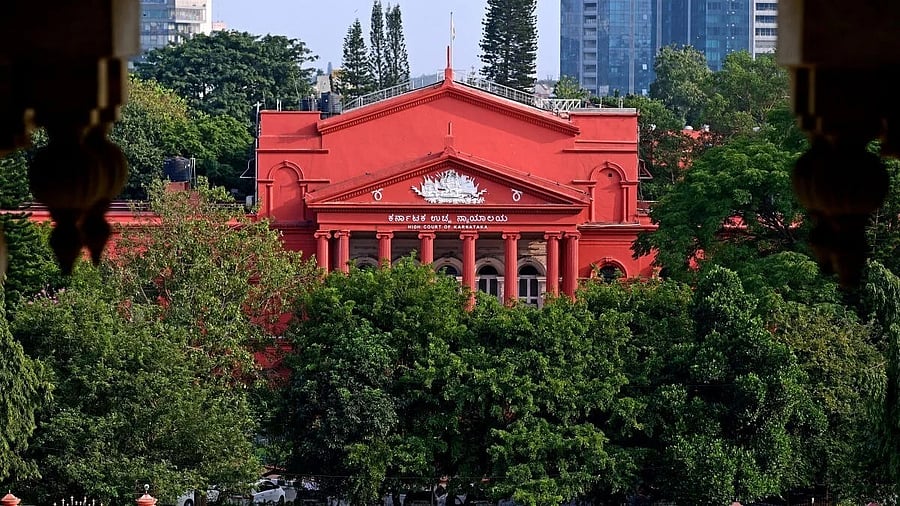
Image of Karnataka High Court.
Credit: DH Photo
Bengaluru: The Karnataka high court has said that a surety or a guarantor cannot be discharged unilaterally at the request of such surety or guarantor.
“The discharge can only happen on repayment of the loan amount and/or substitution of the surety/guarantor to the satisfaction of the lender,” Justice Suraj Govindaraj said while dismissing the petition filed by Munireddy, who challenged his disqualification as President and Director of Mahayogi Vemana Cooperative Society, Yelahanka, Bengaluru.
The petitioner was a surety for a loan taken by one Ravishankar Reddy from Mahayogi Vemana Cooperative Society.
When Ravishankar Reddy failed to repay the loan, three directors of the society filed a complaint with the Registrar of Co-operative Societies seeking disqualification. He was disqualified from the directorship with effect from December 30, 2023 and the appeal too was dismissed.
Challenging these orders, the petitioner contended that he wanted to retire as the surety. Rule 5 (3) of the Business Rules of the Co-operative Society permits the surety to retire by giving due notice to the principal borrower, it was submitted and that such a notice had been given by the petitioner.
It was claimed that notices were issued to Ravishankar Reddy to make available a fresh surety on account of the petitioner having retired as a surety. It was contended that the resolution was passed with the majority of 12 directors out of 14 directors in support of the petitioner.
According to the petitioner, since he had indicated intention to retire, it was for the borrower to bring a new surety and regularise the loan account.
On the other hand, the complainant submitted that the petitioner, being a powerful political figure, had exerted undue influence over the board and got a resolution passed. The resolution is unauthorised and illegal by unilaterally permitting the petitioner to retire from being the surety without any substitution, they argued.
The court examined section 128 of the Indian Contract Act and said that the liability of a surety/guarantor is co-extensive with that of the Principal Borrower, and this liability shall continue until the loan is repaid.
“The aspect of a guarantor being required when a loan is sanctioned is to ensure that the repayment of the loan is made by either the Principal Borrower or the guarantor. Of course, the guarantor would have the right of subrogation, entitling the guarantor to receive the monies from the Principal Borrower, if paid by the guarantor,” Justice Suraj Govindaraj said.
The court further said, “In the present case, a unilateral letter has been issued by the petitioner seeking to retire from suretyship, which has apparently been accepted in a meeting of the Board by 12 of the Directors voting in favour of the Resolution. The Petitioner, who is the President of the Society, has apparently been able to get the Board to pass a resolution in his favour, which is contrary to law.”